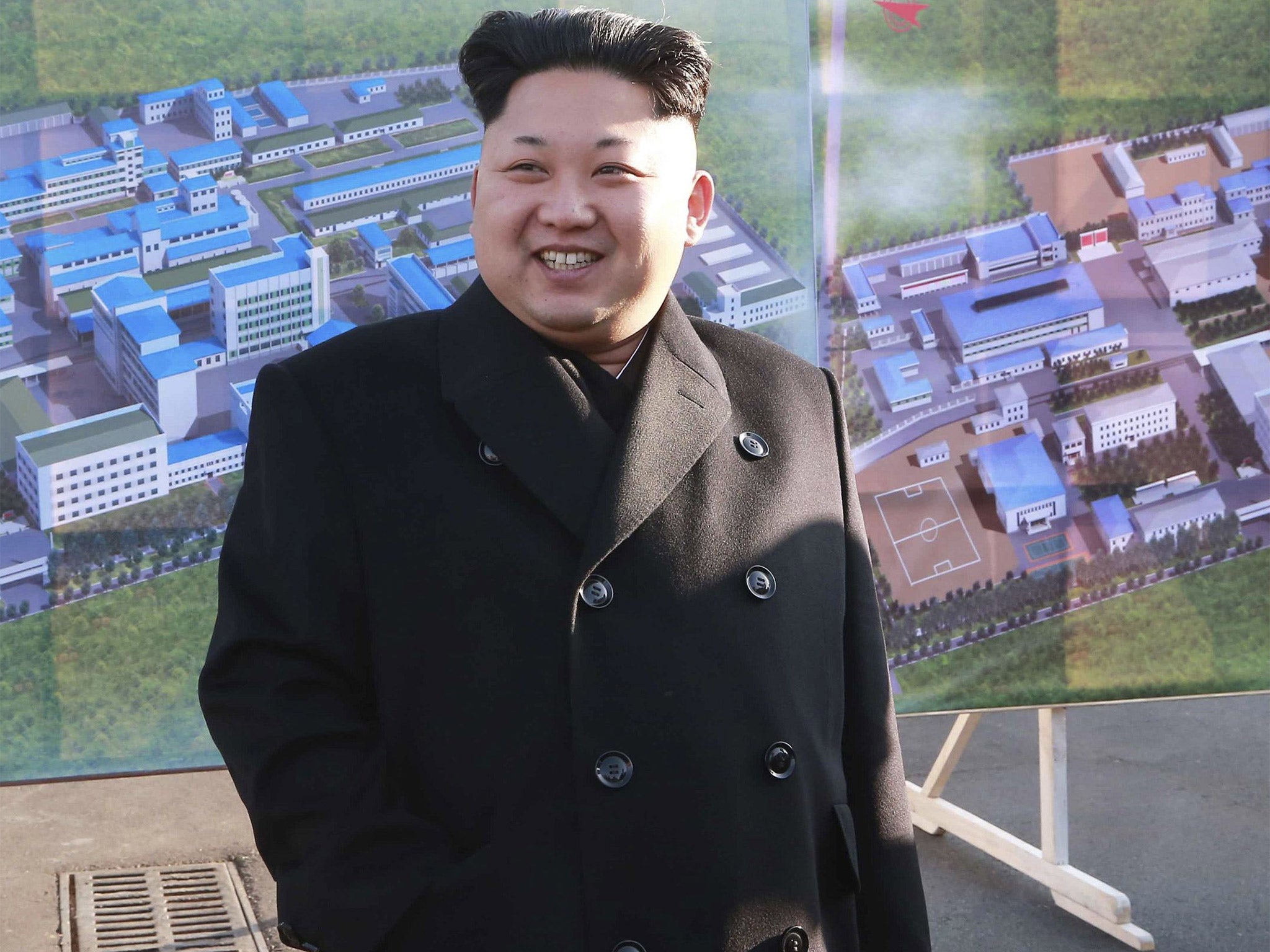North Korea refutes war crimes charge and says human rights system is ‘advantageous’
Pyongyang goes into diplomatic overdrive as UN General Assembly votes to refer the Communist state to the ICC for prosecution

Your support helps us to tell the story
From reproductive rights to climate change to Big Tech, The Independent is on the ground when the story is developing. Whether it's investigating the financials of Elon Musk's pro-Trump PAC or producing our latest documentary, 'The A Word', which shines a light on the American women fighting for reproductive rights, we know how important it is to parse out the facts from the messaging.
At such a critical moment in US history, we need reporters on the ground. Your donation allows us to keep sending journalists to speak to both sides of the story.
The Independent is trusted by Americans across the entire political spectrum. And unlike many other quality news outlets, we choose not to lock Americans out of our reporting and analysis with paywalls. We believe quality journalism should be available to everyone, paid for by those who can afford it.
Your support makes all the difference.North Korea has for decades sent one consistent message to the outside world: frankly, they don’t give a damn.
The worst human rights abuses in the world? Up to 120,000 citizens locked away in secret prison camps, suffering deliberate starvation, torture, rape, forced labour, execution and infanticide? A foreign policy which thrived on nuclear brinkmanship and cross-border sabre-rattling? No matter: this was news management, Pyongyang style. Diplomacy as practiced by the Kim dynasty meant keeping the world in permanent anxiety.
So the frantic display of attempted wooing, sweet-talking, bargaining and influence-buying witnessed at and around UN HQ in New York recently has left seasoned Pyongyang-watchers breathless and bemused.
The occasion was the vote by a committee of the UN General Assembly, which approved a resolution that seeks to have North Korea referred to the International Criminal Court in The Hague for prosecution for crimes against humanity. It next moves to the entire assembly, which must approve it before it goes to the Security Council.
One might suppose a prosecution in The Hague would be seen by the Democratic People’s Republic as yet another feather in its collective cap. Instead its diplomats have been trying out new moves.
“They’re using whatever leverage they can to knock the wind out of this resolution,” Param-Preet Singh of Human Rights Watch commented.
Three Americans imprisoned in the country have been allowed to go home, the latter two, Matthew Miller and Kenneth Bae, following the first ever visit by an American official, James Clapper, Director of National Intelligence, to North Korea. Pyongyang has concluded investment and debt relief deals with Russia, has entered into direct talks with Japan over Japanese citizens abducted in the country in the 1970s and ‘80s, and has prevailed on Cuba – a country with whom it has decent relations – to lobby for a deal to be struck over the human rights charges.
The document that has provoked this unprecedented flurry of activity is a 400-page report by a Commission of Inquiry mandated by the UN Human Rights Council which describes the gravity, scale and nature of human rights violations in North Korea as “without parallel in the contemporary world.” It reports in detail the treatment meted out to the men, women and children locked away in the regime’s secret political prison camp system.
In response North Korea has launched a multi-pronged attempt to wield influence that is of considerable sophistication by its own rough-and-ready standards.
It has flatly denied the commission’s findings and issued a counter-report, declaring that North Koreans “feel proud of the world’s most advantageous human rights system.” But in addition it has initiated a dialogue with the UN’s human rights expert on North Korea, and taken part in the Universal Periodic Review process of the UN Human Rights Council. It has gone so far as to suggest a visit by the UN special rapporteur for North Korea for the first time since the mandate was created in 2003.
This offer, however came with conditions, namely that language about “accountability” for the crimes – the charge that the crimes had been committed “pursuant to policies set at the highest levels of the state” – be dropped. When this proposal was rejected, the more familiar Pyongyang language of swagger and threat promptly returned: on 30 October its mission to the UN announced it would “suspend overall consultation on the resolution”, and warned the 50 co-sponsoring member states that they would have to “take full responsibility for all the consequences to be incurred.”
Not being a great traveller, it seems unlikely that Kim Jong-un will grace The Hague’s dock any time soon. But clearly the very prospect has focused minds.
Join our commenting forum
Join thought-provoking conversations, follow other Independent readers and see their replies
Comments